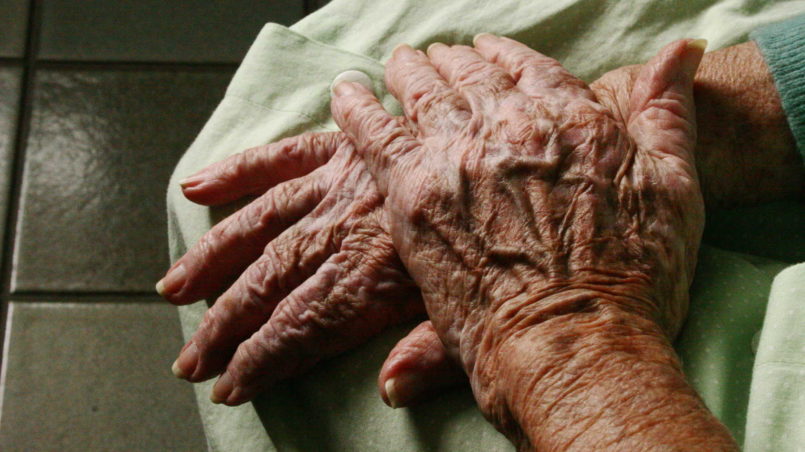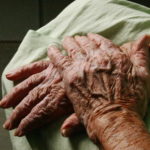The Taboo of Transience

The western banishment of death
The fact that life ends at some point in time is a fact completely banished from our everyday life. Every clue, every memory of it is pushed away, hidden and abstracted. Even meat intended for cooking, an expression of the corporeality and death of other beings, comes from the supermarket in a neutral and eye-friendly portion, detached and separated from the animal whose locomotion apparatus it was once part of, so that many city children do not know that they eat parts of living beings.
Old age and illness are locked out of our comfortable home, we go to the hospital to be ill and to the old people’s home to die. Many of us have never seen a human corpse in our lives and associate horror, loathing and fear with it.
New link
Dying is, on the one hand, taboo, but in an altered form it is an intrusive and persistent guest, broadcast into our living rooms every evening in endless variations … From mass death in the news to the nightly murder chase in countless crime shows, from action heroes shooting everything in sight to epic fantasy slaughter scenes full of blood and bone fragments, right up to the deranged rippers and cannibal clans and, finally, in a very twisted version of spirituality, in the shape of supernatural thrillers full of hungry corpses and vengeful ghosts. Death is a spectacle and a voyeuristic pleasure. As unreal as dragon’s fire, as impersonal as any other mass-produced article.
Our children see thousands of stylishly presented murders and acts of violence as they grow up, but not a single real human being who has peacefully passed away. There can only seem to be an end on television, where your coolness is measured by your ability to watch the orgies of violence unaffected.
Youth cult
Instead, we are completely obsessed with the immaculate physical condition of young adults and the desire to maintain this youthfulness with all our might – with all the strange blossoms that this delusion drives. With the ability to remove physical blemishes, there is suddenly pressure to do so. Here and there, certain procedures are already beginning to be standard, beauty has become a status symbol even more than it always was. Those who cannot afford straight and snow-white teeth are perceived as members of the lower class, peach skin and a model figure, full hair and lips, symmetrical facial features …
All this has become available and thus practically part of body care for the wealthy. Age spots, flaccid skin and arthritis are no longer justified in this display case full of perfect bodies. Our ideal of beauty has only just escaped puberty, the models, endlessly depicted and admired, are often even younger, and the efforts made everywhere to artificially preserve adult bodies in eternal youth are becoming more and more bizarre.
Health and long life
Now in no way do I want to make the point that we have to accept ageing symptoms such as senility, pain and illness as a given, meekly acknowledging suffering as a natural way of life. A cure for the health decline is a necessary goal, as we now spend much more of our lives in old age than we are blessed with youthful freshness. A long life in good health and freedom from deterioration is not only important for the individual to make new experiences, thus having a chance – however small – to acquire some wisdom, it also presents us with great social challenges when the number of individuals in need surpasses that of healthy members. The school of thought, according to which we are not entitled to oppose age, cannot work if the result is a host of pain-troubled, senile invalids who still have forty years of this agony ahead of them.
What death could teach us if we only let it happen
Anyone who has ever been faced with the irrevocable fact that life ends, that death is not an abstract matter, not an invention, not the subject matter of fairy tales and action films, but rather our destiny, has inevitably become aware that wealth cannot accompany us. Whether or not something comes after, the last few years in which the approach of the end turns into a certainty can be very different depending on what a person has concentrated on in their life. Those who have made it their goal to accumulate more and more wealth at all costs suddenly face their life’s work and inevitably realize that it is worthless.
We put aside the thought of the end as morbid, while in reality nothing could be closer to life than the consciousness of how precious finiteness makes it.
Credits
| Image | Title | Author | License |
|---|---|---|---|
 |
Old Hands | marina guimarães | CC BY-SA 2.0 |
